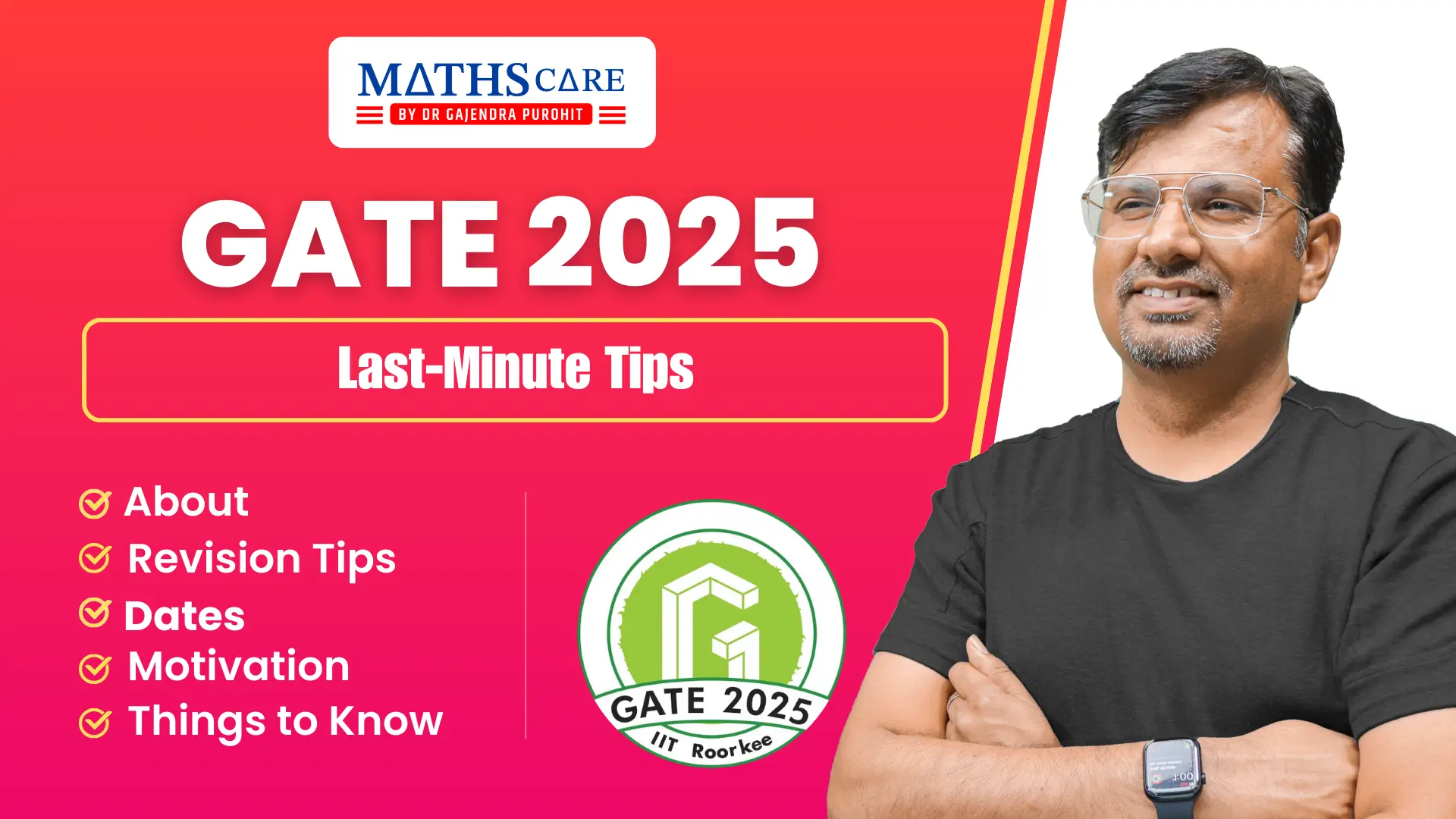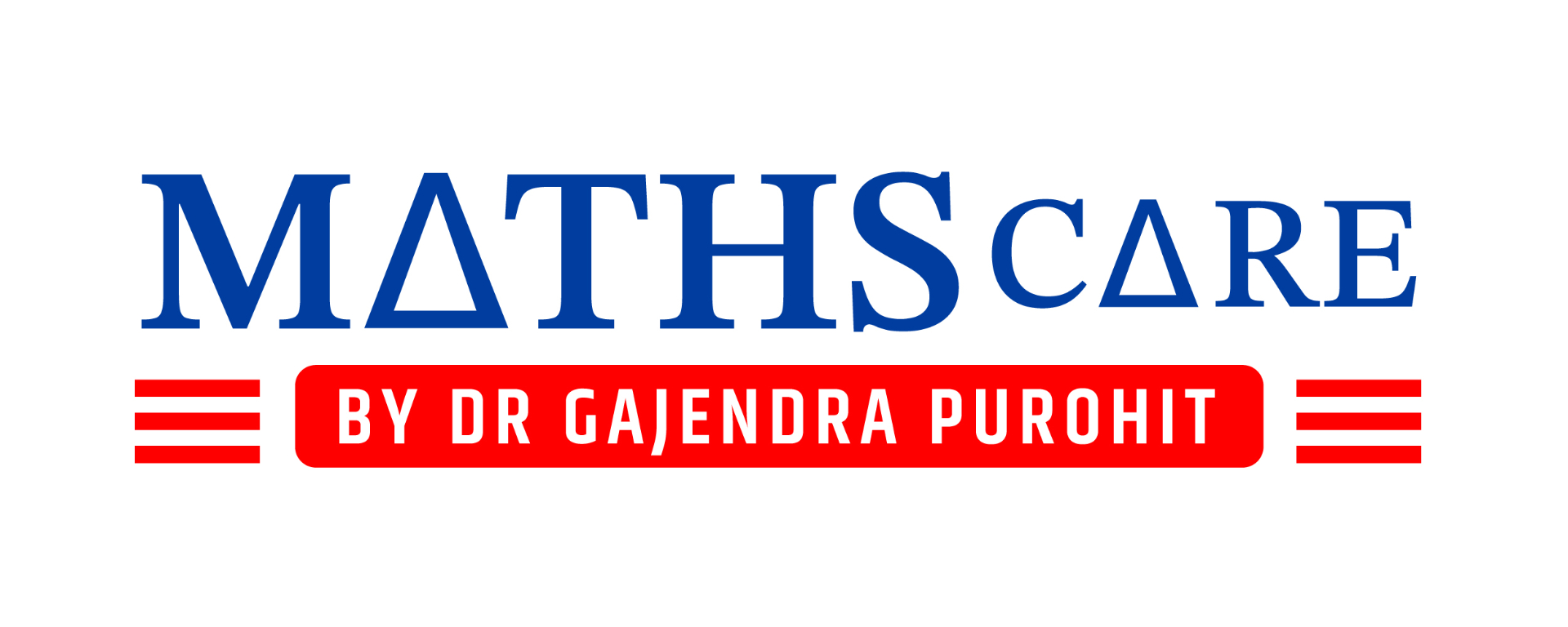GATE 2026 Paper Pattern
GATE (Graduate Aptitude Test in Engineering): The Graduate Aptitude Test in Engineering (GATE) is a prestigious and highly competitive examination conducted at the national level in India. It serves as a gateway for admission into postgraduate programs (M.E./M.Tech./Ph.D.) in IITs, NITs, IISc, and other esteemed institutions, as well as for recruitment into various Public Sector Undertakings (PSUs). The exam assesses candidates’ understanding of undergraduate-level subjects in engineering, technology, science, commerce, and humanities. Understanding the paper pattern is crucial for candidates aiming to secure a high score. GATE 2026 will be conducted as a Computer-Based Test (CBT) across various centers in selected cities. This blog provides an in-depth look at the paper pattern, marking scheme, eligibility criteria, and essential preparation tips to help aspirants achieve their goals.
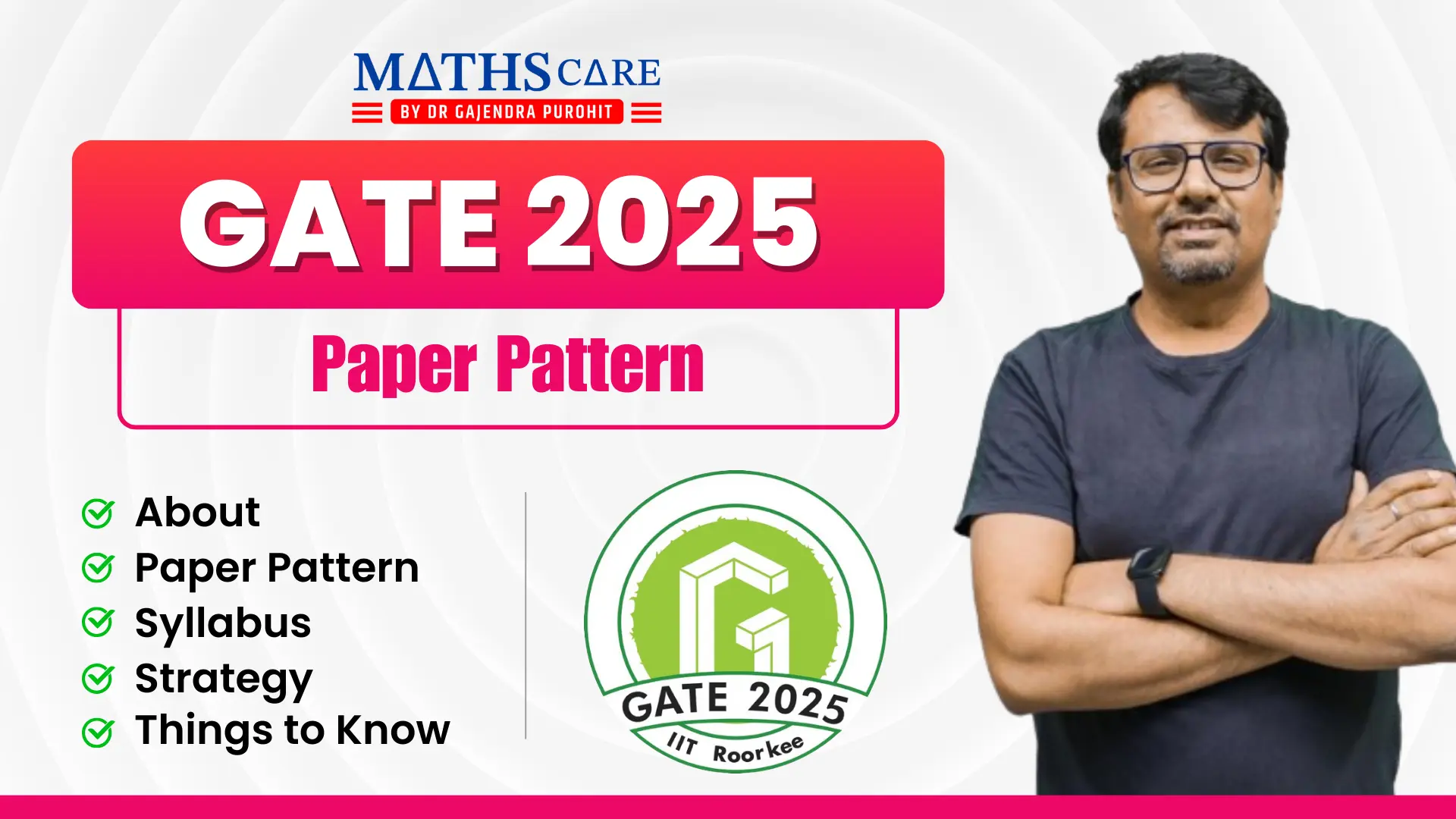
About GATE 2026
GATE is conducted jointly by the Indian Institutes of Technology (IITs) and the Indian Institute of Science (IISc), Bangalore, under the guidance of the National Coordination Board (NCB). This examination evaluates candidates’ comprehensive understanding of various undergraduate subjects across multiple disciplines, including Engineering, Technology, Science, Commerce, and Humanities. The GATE score remains valid for three years for admission into postgraduate programs, while many PSUs also use the score for direct recruitment. Over the years, GATE has gained recognition beyond India, with several foreign universities considering GATE scores for admissions, making it an essential exam for candidates aspiring for higher education and career opportunities globally.
Paper Pattern
The GATE 2026 exam will be conducted in English in a Computer-Based Test (CBT) format. The duration of the exam is three hours, and candidates must attempt one of the 30 available subjects. The test will consist of two sections: General Aptitude (GA) and the candidate’s selected subject. The types of questions included in the exam are:
Multiple Choice Questions (MCQs): Candidates must choose the correct option from four given choices.
Multiple Select Questions (MSQs): These questions have multiple correct answers, and candidates must select all the correct options to score marks.
Numerical Answer Type (NAT) Questions: These require candidates to enter a numerical value as the answer without any choices provided.
Questions are designed to test the candidates’ recall, comprehension, application, and analytical abilities. The examination structure ensures that candidates possess a deep understanding of their chosen subject, along with problem-solving skills and logical reasoning abilities.
Marking Scheme
The marking scheme in GATE 2026 varies for different types of questions:
General Aptitude (GA): This section carries 15 marks and is common across all papers.
Engineering Mathematics: Included in most papers, this section carries 13 marks.
Subject-specific questions: These carry the remaining marks, bringing the total score to 100.
Marking pattern: Questions carry either 1 or 2 marks each.
Negative Marking: MCQs have negative marking, where 1/3 marks will be deducted for each incorrect 1-mark question, and 2/3 marks will be deducted for each incorrect 2-mark question.
No negative marking for MSQs and NAT questions: These questions provide an opportunity to attempt without the risk of losing marks for incorrect answers.
This structured marking scheme ensures that candidates are evaluated on both accuracy and conceptual clarity, making it imperative to prepare with precision and strategy.
Admitting Institutes
Candidates clearing GATE 2026 can seek admission into various prestigious institutes, including:
Indian Institutes of Technology (IITs): These premier institutions offer M.Tech and Ph.D. programs in various engineering disciplines.
Indian Institute of Science (IISc) Bangalore: Known for its advanced research facilities, IISc offers numerous postgraduate and doctoral programs.
National Institutes of Technology (NITs): NITs provide M.Tech admissions through centralized counseling.
Indian Institutes of Information Technology (IIITs): These institutes focus on IT and computer science-related disciplines.
Other government-funded institutions: Several other universities and research organizations accept GATE scores for admissions.
Additionally, many Public Sector Undertakings (PSUs) use GATE scores as a criterion for recruitment, offering lucrative career opportunities in reputed organizations such as BHEL, ONGC, IOCL, and DRDO.
Eligibility Criteria
Before applying for GATE 2026, candidates must ensure they meet the eligibility requirements. The primary criteria include:
Academic Qualification: Candidates must be in their third year or higher of any undergraduate degree program or must have completed a government-approved degree in Engineering, Technology, Architecture, Science, Commerce, Arts, or Humanities.
Professional Societies/Institutions: Candidates from professional societies/institutions recognized by AICTE/UGC/UPSC may also be eligible. However, they must ensure that their certifications are equivalent to B.E./B.Tech./B.Arch.
International Candidates: Candidates from outside India must have completed or be in the third year of their Bachelor’s degree (minimum three-year duration) in Engineering, Technology, Science, Commerce, or Arts.
Meeting these eligibility criteria is essential for appearing in GATE 2026, and candidates should verify their qualifications before applying to avoid disqualification.
General Aptitude Tips
General Aptitude (GA) is a crucial section in GATE and carries 15 marks. To perform well in this section, candidates should:
Improve verbal ability: Focus on grammar, comprehension, vocabulary, and logical reasoning.
Strengthen quantitative aptitude: Practice numerical topics such as percentages, ratios, probability, and data interpretation.
Solve previous years’ GA questions: Familiarize yourself with question patterns and difficulty levels.
Time management: Allocate specific time for GA preparation to maximize scores without neglecting core subjects.
Scoring well in GA can significantly boost the overall GATE score, making it a vital section in the exam.
Preparation Tips
To excel in GATE 2026, candidates should adopt a strategic preparation approach:
Understand the syllabus: Go through the official syllabus and identify important topics.
Make a structured study plan: Allocate sufficient time to each subject and revise regularly.
Practice previous years’ papers: Solving past GATE papers helps in understanding the pattern and difficulty level.
Take mock tests: Attempting mock tests will improve time management, accuracy, and confidence.
Focus on weak areas: Identify and work on topics where improvement is needed.
Use standard reference books: Follow recommended books and online resources for effective learning.
A disciplined approach and consistent efforts can significantly enhance the chances of securing a top rank in GATE 2026.
GATE 2026 Fellowship Opportunities
Candidates qualifying for GATE 2026 can avail themselves of numerous fellowship opportunities, including:
MHRD Scholarships: Monthly stipends for M.Tech and Ph.D. students in IITs and NITs.
Junior Research Fellowship (JRF): Offered by CSIR and DRDO for research-oriented programs.
Public Sector Undertakings (PSUs): Recruitment in ONGC, NTPC, BHEL, IOCL, GAIL, HPCL, DRDO, etc.
Foreign Universities: Certain international institutions provide research fellowships based on GATE scores.
Conclusion
GATE 2026 is a highly competitive exam that demands thorough preparation and strategic planning. Understanding the paper pattern, marking scheme, and eligibility criteria is essential for effective preparation. By following a structured study plan, practicing consistently, and focusing on key topics, candidates can maximize their chances of securing a high score. GATE not only opens doors for higher education but also offers opportunities for lucrative PSU jobs. Start preparing early, stay focused, and aim for excellence in GATE 2026.
GATE FAQS
Upload the side of your ID showing your photo, name, date of birth, and ID number.
No, GATE application fees are non-refundable.
It depends on seat availability in your requested city. There’s no guarantee.
No, your application will be marked defective, and you will be asked to correct it.
Yes, you can add a second paper during the correction window, with an additional fee.
BEST OFFERING COURSES FOR YOU
BEST BOOKS FOR IIT JAM/ CSIR-NET
BUY BOOKS ON OUR APP
RECENT POSTS
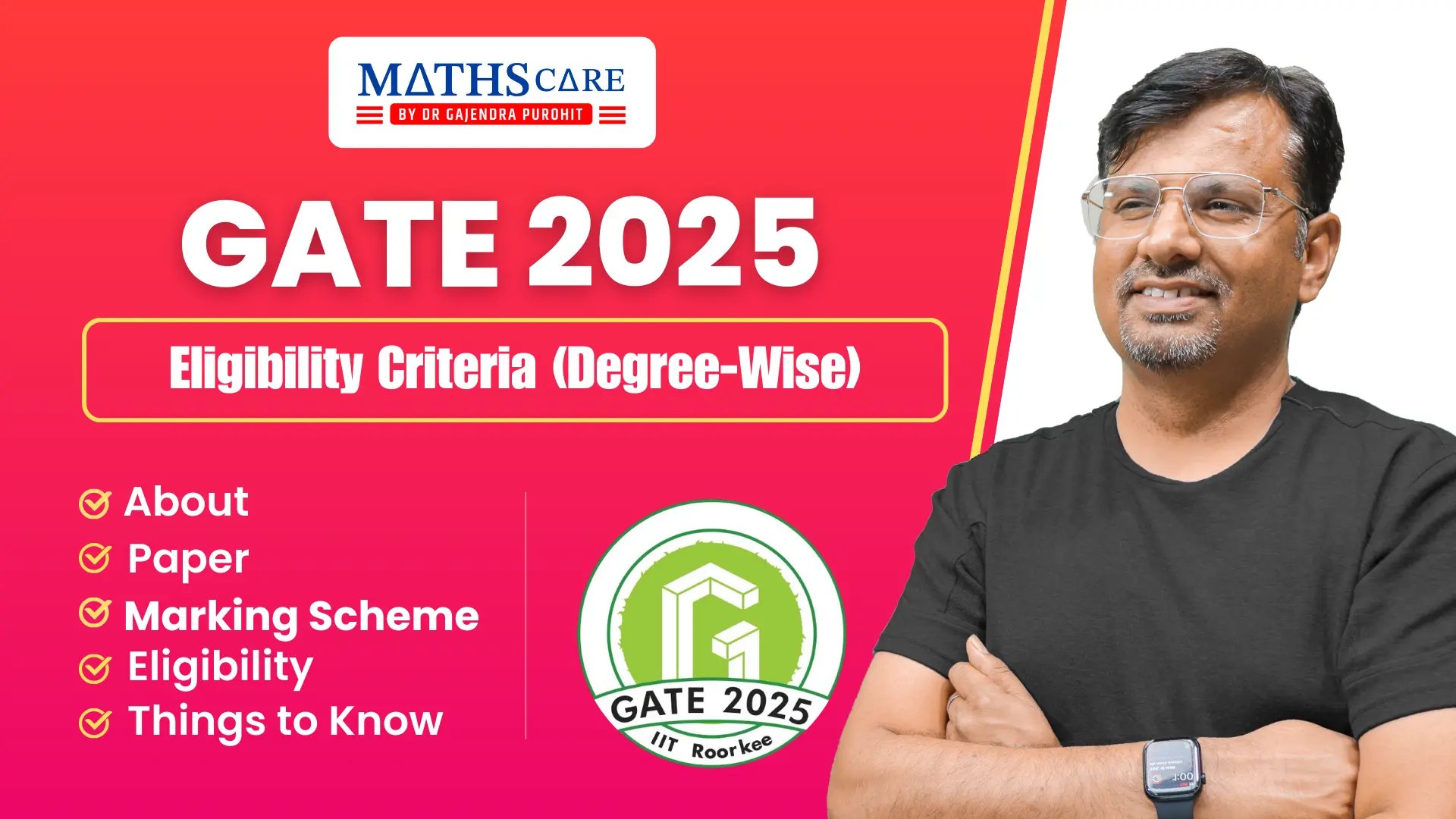
GATE Eligibility Criteria (Degree-Wise)
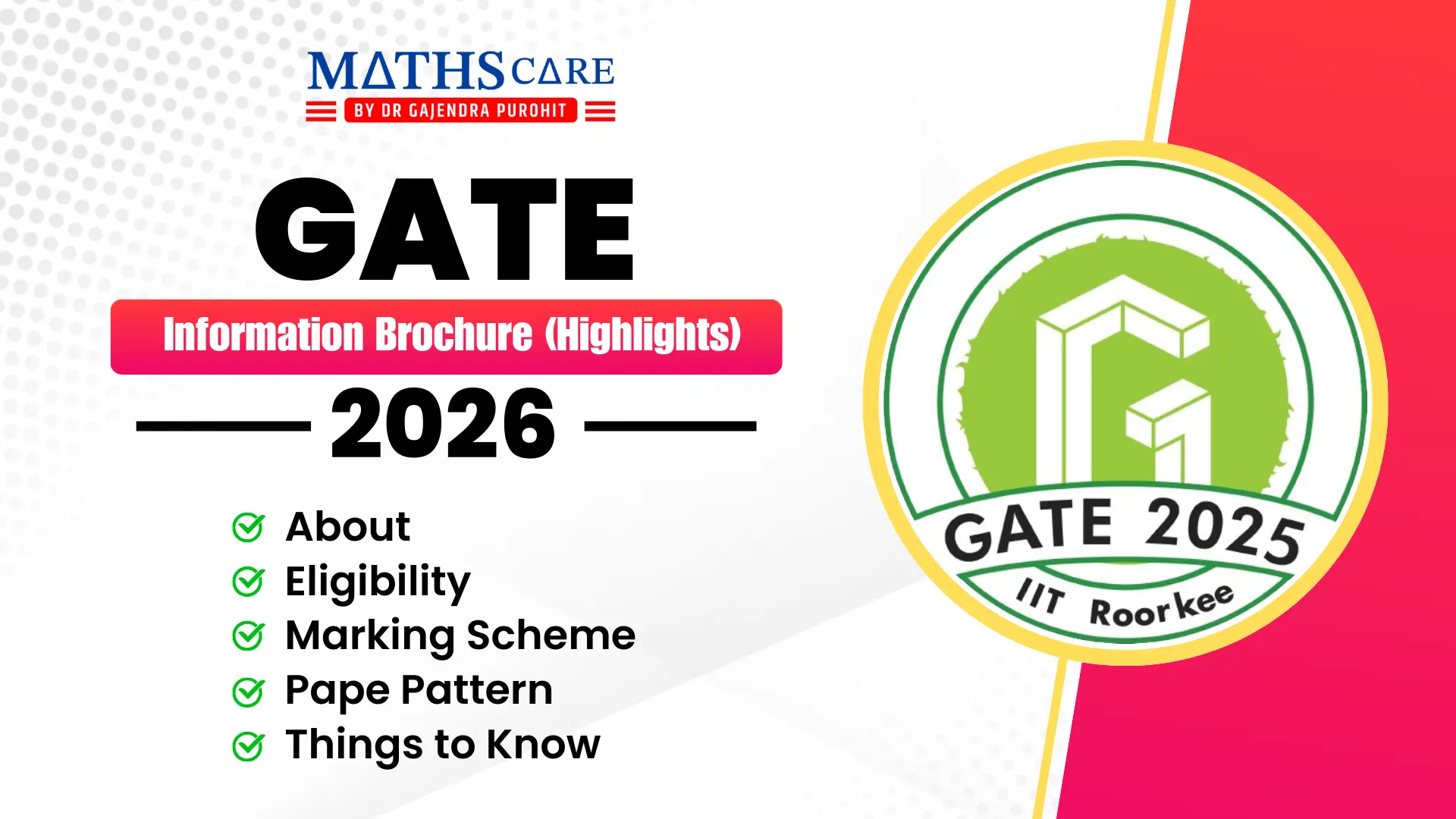
GATE 2026 Information Brochure (Highlights)
